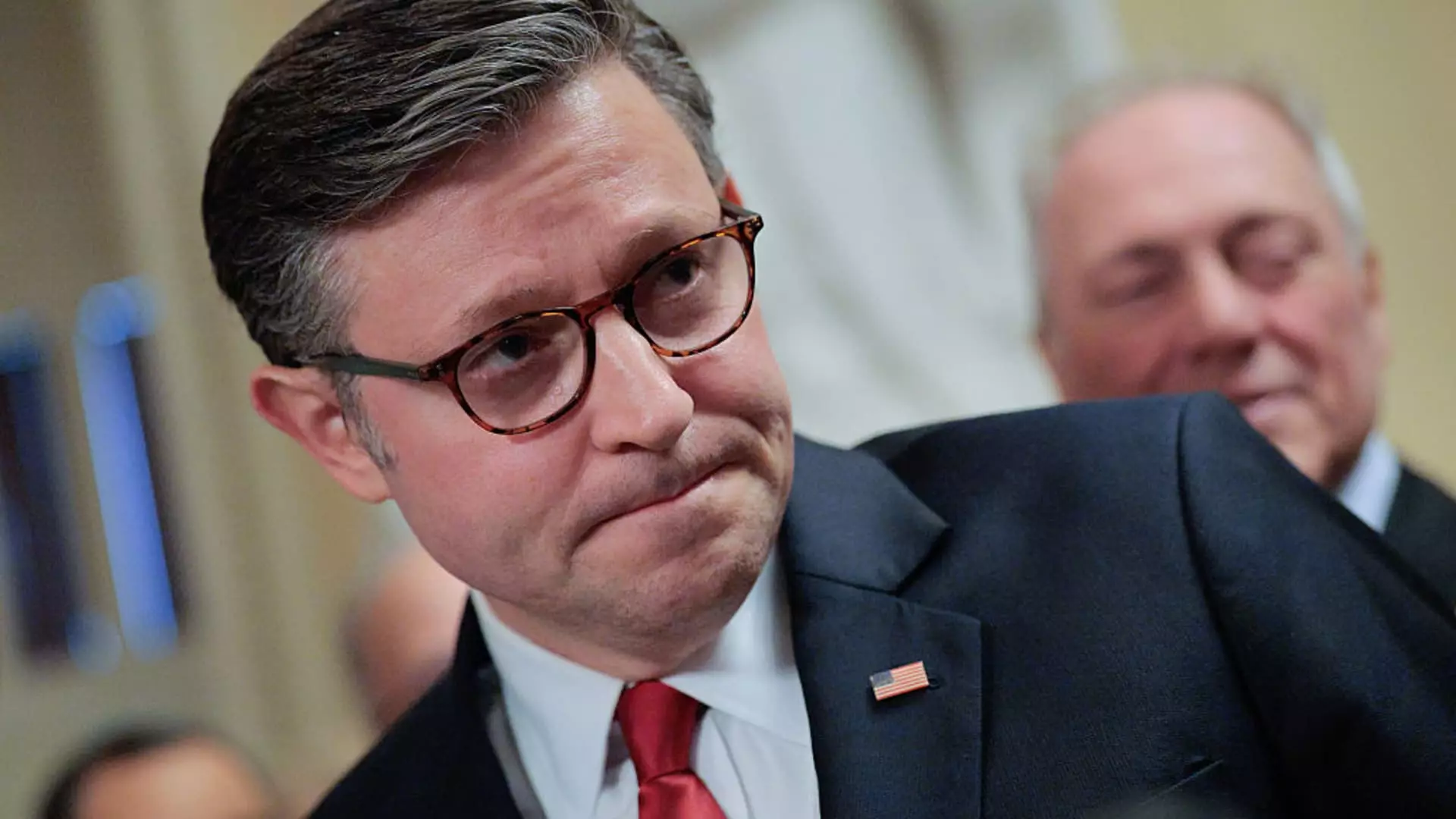The recent passage of a monumental tax and spending bill in the U.S. House reveals more about political showmanship than genuine progress. While headlines celebrate the bill as a victory for the Republican-led Congress and the Trump-era policies it embodies, a critical eye uncovers a troubling story of manipulation and imbalance. The process, riddled with internal party conflicts and backroom negotiations, exposes the fragility of American democracy’s purported efficiency. Instead of addressing the nation’s pressing needs with fairness and foresight, this legislative spectacle highlights the tendency of political actors to prioritize allegiance and power over meaningful reform.
The maneuvering within the House underscores a broader truth: this bill was less about public benefit and more about consolidating political dominance. The narrow margin of victory, dependent on ideological loyalty rather than consensus, reflects a government increasingly driven by factional interests. The behind-the-scenes compromises, last-minute negotiations, and party-line voting expose a system where policymaking is more about survival than service. It becomes evident that the democracy is often manipulated by those who benefit most—wealthy elites and political insiders—while the average citizen remains passive or disengaged.
The Deepening Divide: Winners and Losers on Opposite Sides
At its core, the legislation embodies a stark inequality, further fueling a cycle where the ultra-rich prosper at the expense of the vulnerable. Advocates argue the bill champions economic growth and national security; opponents see it as a giveaway to the wealthy and a betrayal of core social values. The claim that billionaires will hoard additional billions while millions of Americans risk losing health insurance or access to nutrition programs underscores a fundamental moral failing. This disparity is not incidental but systemic, rooted in a political philosophy that privileges wealth accumulation over equitable opportunity.
For many critics—progressives and center-left liberals—the bill’s emphasis on extending tax cuts for the wealthy reveals a distorted commitment to fiscal conservatism. It ignores the basic principle of fairness that a functioning democracy should provide safeguards for those at the bottom and middle of the economic ladder. The debate surrounding cuts to social safety nets and health coverage illustrates a troubling trend: policy decisions increasingly favor the interests of the few over the needs of the many. Such policies deepen societal divides, foment public resentment, and threaten social cohesion.
Power Play Over Principles: The Cost of Political Self-Interest
The spectacle of bipartisan chaos, with Republican defections and Democratic objections, demonstrates how far politics has strayed from genuine statesmanship. Instead of working collaboratively to craft solutions that serve the common good, legislators are engaged in strategic battles for power, often at the expense of policy integrity. The fact that the bill needed last-minute negotiations to pass, and that Vice President JD Vance had to cast a tie-breaking vote in the Senate, signals a broken system in which legislative outcomes are often unpredictable and unjust.
Moreover, the partisan furor—Trump’s public outburst, Democrats decrying welfare cuts, and Republicans defending the investments—masks a deeper failure: the inability of a polarized Congress to address pressing societal issues with balance and compassion. The political theater robs the process of authenticity, replacing genuine concern with messaging and posturing. Ultimately, this diminishes public trust and compounds the alienation felt by ordinary Americans who see their needs sidelined in favor of ideological battles.
The Real Cost of a Disconnected Democracy
By approving legislation that seems more rooted in political calculus than societal good, the U.S. risks further entrenching inequality and eroding the foundations of social justice. While the bill claims to modernize fiscal strategies and boost border security, it does so at a cost that many citizens will bear disproportionately. The cuts to health and nutrition programs threaten to push more Americans into poverty, while the increase in debt and tax cuts for the wealthy suggest that fiscal responsibility is being abandoned in favor of short-term political wins.
This dynamic underscores a fundamental truth: the health of a democracy depends on its commitment to fairness, transparency, and long-term vision. When the political elite become preoccupied with their own survival—shutting out dissent and ignoring the needs of the marginalized—the society at large suffers. The recent developments in Congress serve as a stark reminder that true governance cannot be reduced to power plays and superficial compromises; it requires deliberate effort to prioritize the common good over individual or partisan gains.

